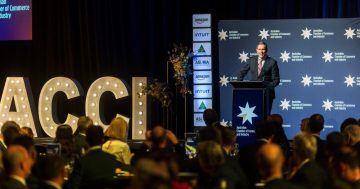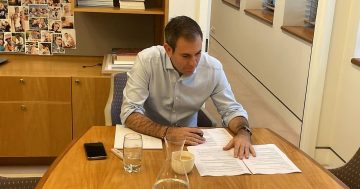Planning for retirement can be started at almost any age so Ishara Rupasinghe* has some tips for ‘empty nesters’.

Credit: bernardbodo
While good in theory, not everyone can practically start saving for retirement at a young age.
As you go through your 20s, 30s, 40s and even 50s, commitments like putting the kids through school and paying down the mortgage may take priority over something that may be at least 20 years away – like retirement.
So, when the kids are starting to earn their own income and become more independent, or you’re close to paying off the beast that was your mortgage, planning for that next stage can be a challenge.
Finally, you get to think about yourself and your own future!
So where do you start?
It might be tempting to celebrate with the extra cash flow you have, but now is your chance to put it to good use, so it can help you have the life you want in retirement when you’re not earning a salary.
For most people, super is the most tax effective place to build your retirement nest egg and if you’ve just become an empty nester in your 50s, it’s not too late to start boosting your super.
Making pre-tax contributions can be a good way to start, because in addition to growing your super, you also reduce your personal income tax bill.
The maximum pre-tax contribution allowed each year is $25,000 – but be aware that this includes any amount your employer is already putting in, like the 9.5% super guarantee contributions.
If you’re wondering what difference these contributions can make this ‘late’ in the picture, take a look at these numbers.
Assuming you’re 50 and have $300,000 in super and start putting in the maximum pre-tax amount of $25,000 each year, by the time you’re 65 you could have $910,000 in super (assuming 3.5% earnings per year).
If you have surplus cash flow after maximising the $25,000 limit you should consider making regular post-tax contributions.
For instance, if you put in an extra $1,000 per month as a post-tax contribution from the age of 50, your balance at 65 would be more like $1,145,000 (assuming 3.5% earnings per year).
If you can do this as a couple, this means you could have a combined super balance of over $2 million for your retirement.
Great news is, you can still make contributions if you’re not working – as long as you’re under 65.
Why would you do this, you ask?
Well, if you’ve got taxable income in retirement, say from a defined benefit pension or investment portfolio, it may be worthwhile making a personal contribution of up to $25,000 each year because you could claim this as a deduction against your income at tax time.
Assuming you are eligible, all you need to do is send your super fund a ‘notice of intent to claim a deduction’ form so they give the correct information to the ATO and you could get the tax benefit when you lodge your tax return.
With people living longer and with the rising cost of living, we need to save as much as we can by retirement.
The power of compounding interest means the earlier you can start putting a little bit away into super, the greater chance you have in getting to your retirement income goals sooner!
But as super is generally not accessible until you reach preservation age (from age 55 to 60) and retired, it’s important to consider how long your savings will be locked up for and keep a personal cash reserve to cover any unexpected expenses.
Don’t forget, your end balance will also be impacted by the performance of your super fund, so it’s important to look at how you’re invested within your superfund and whether the level of risk you’re taking with your investments is right for you.
It’s also worthwhile investigating what fees you’re paying, particularly if your balance is building up quickly, as sometimes the fees can add up quickly too.
If you feel you need a little bit of help working through how to reach your retirement goals, seek advice from a trusted expert.
* Ishara Rupasinghe is a Director at Dixon Advisory
This information may contain general financial advice and was prepared without taking into account your objectives, financial situation or needs. Before acting on any advice, you should consider whether the advice is appropriate for you. Seeking professional personal advice is always recommended. This information may contain statements, opinions and projections, based on various assumptions. Any forward looking statements are based on current expectations at the time of writing. No assurance can be given that such expectations will prove to be correct.











